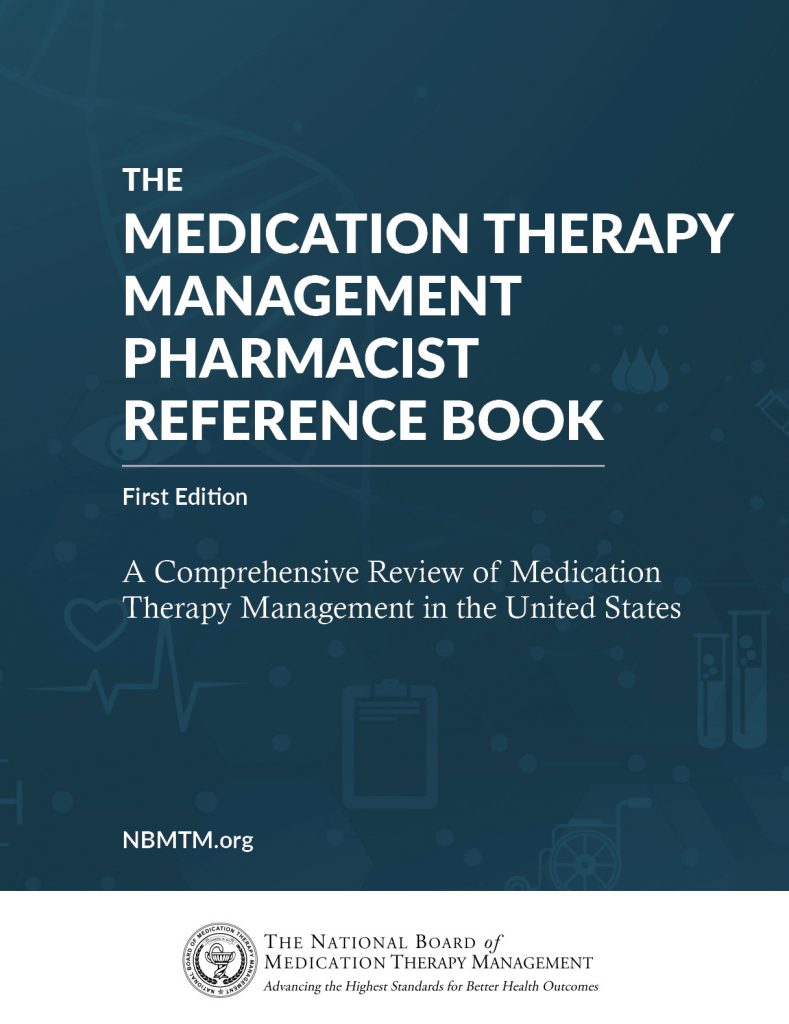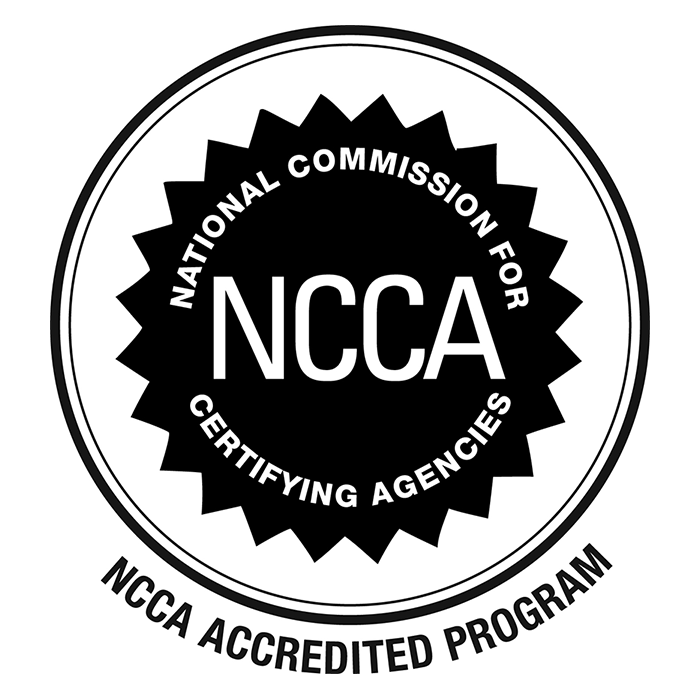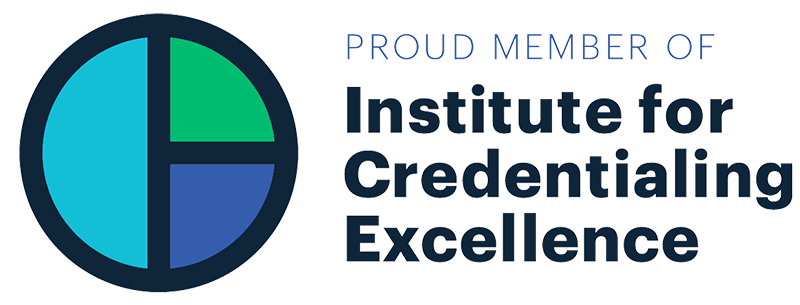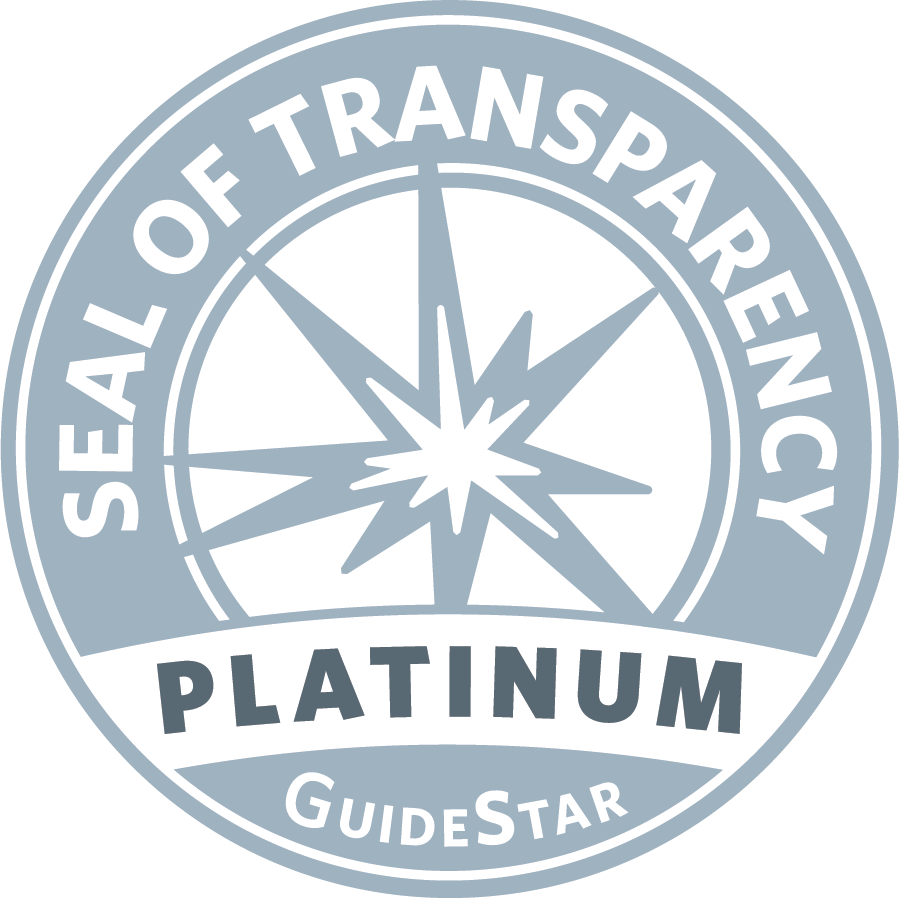
Chapter 11: MTM Training Resources
Pharmacists and other providers wishing to obtain training in MTM can pursue one of several resources designed to train the enrollee in standardized MTM clinical training. Clinical training is a valuable resource for providers working in multiple settings, including community pharmacies, hospitals, and healthplans. The length of training and price varies based on the specific program.
Most of the resources below are designed to accommodate a post-graduate pharmacist that is currently in practice. However, both the University of Florida’s Graduate Certificate in Comprehensive Medication Management and the University of Florida’s Master’s degree in Medication Therapy Management are available to healthcare professions outside the profession of pharmacy, including:
- Nurses
- Physicians
- Physician Assistants
Providers who pursue advanced training in MTM place themselves in a position to receive several benefits, including providing better care for their patients, developing themselves professionally, creating new revenue and billing opportunities, and advancing their respective healthcare professionals as members of the interprofessional team. Providers who complete MTM training programs are more likely to obtain relationships with healthplans, where they can provide MTM services for patients.
The following information is up to date as of March 2020 but may have changed since then. Review each course resource for the most up to date information.
APhA’s Delivering Medication Therapy Management Services Certificate Training Program
The APhA’s summarizes their MTM training program as:1
APhA’s Delivering Medication Therapy Management Services presents a systematic approach for developing, implementing, delivering, and sustaining MTM services. It includes an overview of the marketplace for delivering MTM services, guidance for implementing MTM services in pharmacy practice, a review of the essential skills and knowledge needed for performing MTM successfully, and an organized process for identifying medication-related problems. The purpose of this certificate training program is to prepare pharmacists to improve medication use through the delivery of MTM services in a variety of practice settings.
Goals and Learning Objectives
- Advance public health and patient care through improved medication use.
- Provide training to enhance pharmacists’ ability to effectively provide MTM services.
- Motivate increased numbers of pharmacists to establish MTM services.
- Communicate benchmark practices for providing MTM services.
The target audience of the certificate training program is pharmacists in any area of practice. Pharmacists who complete the program are eligible to receive 21.0 contact hours (2.1 Continuing Education Units [CEUs]) of continuing education credit from the American Council for Pharmacy Education (ACPE). The curriculum is divided into sections, with each section providing portions of the total continuing education credit. The current curriculum was released on July 1, 2018, and expires on July 1, 2021.
The curriculum includes:
- Self-Study (1.0 CEUs with a passing grade of 70% or higher on the self-study assessment)
- Module 1. The Pharmacists’ Patient Care Process and MTM
- Module 2. Becoming an MTM Practitioner: A Plan for Success
- Module 3. Getting Ready for MTM Service Delivery: Knowledge and Skills
- Module 4. Ready for Action: Conduction an MTM Encounter
- Live Seminar (0.8 CEUs upon the completion of the seminar and an online evaluation)
- . The live seminar is held at the APhA annual meeting
- Post-Seminar Case Exercise (0.3 CEUs upon completion of 3 post-seminar cases and an online attestation statement of completion)
- . Pharmacists practicing in Minnesota complete 12 post-seminar cases for a total of 1.2 CEUs
Pharmacists enrolled in the course learn to conduct the critical components of an MTM service, including MTR, PMR, and MAP. The course also covers the elements of appropriate documentation and how to bill for services using CPT codes. Marketing strategies and emerging opportunities are discussed. The total cost for the program is $255 for members and $515 for nonmembers. Pharmacists complete the self-study portion online and then attend a live seminar at APhA’s national yearly convention.
APhA developed the course through the assistance of an advisory board made of pharmacists in the community and faculty at various schools of pharmacy. APhA staff members specialized in advanced clinical training also assisted with development. Contributors to the program declare no conflicts of interest or other relevant financial disclosures.
Power-Pak C.E.® Certificate in Medication Therapy Management
Power-Pak C.E.® is a well-known provider of continuing education programs for a variety of healthcare professionals, including pharmacists, physicians, physician assistants, nurse practitioners, and pharmacy technicians. Power-Pak C.E.® offers online courses that the healthcare provider can complete at their convenience. Practitioners receive credit upon the completion and score of 70% on graded exams.
Power-Pak C.E.® offers courses for many types of healthcare professionals, but the Certificate in Medication Therapy Management is designed for pharmacists. They describe their curriculum as:2
This 30-credit Certificate Program for pharmacists contains learning modules that provide the education and skills needed for pharmacists to initiate and perform MTM. The program provides practical courses to help pharmacists design and implement a successful MTM program, along with a comprehensive clinical section encompassing the most common medical conditions in which MTM is applied. This certificate program was developed in collaboration with nationally recognized MTM specialists from the faculty of the nation’s top Schools of Pharmacy.
Projections suggest an increasing demand for pharmacists to expand their roles in healthcare delivery. This includes greater participation by pharmacists in medication therapy management (MTM) services. While MTM is primarily a Medicare-driven program, many of the skills used by pharmacists in MTM are applicable to collaborative practice agreements (CPAs), comprehensive medication management (CMM), and other arrangements that involve pharmacist participation in patient care.
This program provides a Certificate of training verifying that you have completed the course material, and is not a Certification program.
Program Goals
Pharmacists completing this program will be better prepared to:
- Better understand government and third-party payers to plan and perform MTM services
- Identify and approach patients for MTM services
- Administer the required paperwork to initiate and document MTM services
- Strengthen key principles of communication, adherence, and medication safety
- Effectively evaluate treatment plans in a broad range of disease states
Modules of study include:
- Overview and Definition of Medication Therapy Management (MTM)
- Identifying Patients for MTM Services
- Collection and Evaluation of Patient-specific Information
- Developing a Medication Action Plan for MTM
- Part 1. Communication Essentials: Tips for Patient and Care Giver Communication; Part 2. Communication With Physicians and Other Healthcare Providers
- Practicing Evidence-Based Medicine
- Endocrine Disorders
- Cardiovascular Disease
- Respiratory Disorders
- Gastrointestinal Disorders
- Urological Disorder
- Psychiatric Disorders
- Bone and Joint Disorders
- Assessing and Optimizing Patient Adherence in MTM
- Medication Safety and Error Prevention
- BONUS CONTENT: Appendix: MTM Compensation Models for Pharmacy Professionals
The current curriculum was released on July 2, 2019, and expires on July 2, 2022. The total cost of the program is $79, making this training program one of the more affordable options. Payment includes access to the course modules for two years.
Pharmacy professionals developed the course; most are clinical professors from the University of California (UCSF) School of Pharmacy, the University of Illinois at Chicago College of Pharmacy, and the University of Louisville School of Medicine. A group of 58 peer reviewers mostly made up of pharmacists reviews the content.
University of Florida’s Graduate Certificate in Comprehensive Medication Management (CMM)
The University of Florida offers an opportunity for non-pharmacy professionals to obtain training and certification in comprehensive medication management. The certificate program is offered by the University of Florida College of Pharmacy. Applicants must possess a minimum of a bachelor’s or professional degree and an upper-division GPA of 2.0 or above.
Those wishing to enroll should apply for the graduate certificate. Applicants enter their previous academic information (undergraduate major, colleges attended, and official transcripts), relevant work experience, and whether or not they are a Florida resident. The application fee is $37.
The courses can be completed online and completed in two semesters. The graduate certificate requires the completion of 12 credits. The cost per credit is $650 plus fees, and the total cost of the graduate certificate is $7800 plus fees. Additional University-assessed fees per credit may apply.
The following includes detailed information from the University of Florida College of Pharmacy:3
Our medication therapy management (MTM) graduate certificate is comprised of four 3-credit courses and has been designed to meet the needs of today’s working professionals. The program, which is provided by the College of Pharmacy, focuses on medication therapy management and its business principles, literature review and evaluation, and patient-centered care. This program teaches healthcare providers how to: provide MTM services, maximize patient and interdisciplinary team communication skills, identify and prioritize medication-related problems, educate patients and manage MTM business elements. This program can be completed in as little as 2 semesters.
This program may be helpful to those interested in medication therapy management (MTM) and currently working in or seeking employment in the following areas:
- Pharmacists
- Nurses
- Physician’s Assistants
- Medical Doctors
Upon completion of the 12-credit graduate certificate program, students will receive a University of Florida Graduate Certificate in Comprehensive Medication Management. The graduate certificate program is open to appropriately qualified local, national, and international students. The goal of this certificate program is to educate healthcare professionals in the field of medication therapy management (MTM) and comprehensive medication management (CMM).
Credits taken to earn the MTM graduate certificate can be transferred toward the online Master of Science in Pharmacy with a major in Pharmaceutical Sciences and a concentration in Medication Therapy Management. Students must earn a grade of “B” or higher to transfer credits and must be formally admitted to the master’s degree program for credits to transfer. All coursework counted toward your master’s degree must be completed during the seven years immediately preceding the term in which the degree is awarded.
Required courses include:
- Foundations of MTM I, 3 credits
- Foundations of MTM II, 3 credits
- Disease State Management for Medication Therapy Management, 3 credits
Students choose one elective course from the following options:
- Medication Therapy Management: A Cardiovascular Focus, 3 credits
- Medication Therapy Management: A Endocrine Focus, 3 credits
- Medication Therapy Management: A Neurologic Focus, 3 credits
- Medication Therapy Management: A Psychiatric Focus, 3 credits
- Medication Therapy Management: A Gastrointestinal Focus, 3 credits
- Medication Therapy Management: A Hematological Focus, 3 credits
- Medication Therapy Management: A Respiratory Focus, 3 credits
- Medication Therapy Management: A Renal Focus, 3 credits
Classes may be completed online. Students complete a total of 12 credits to earn the graduate certificate in MTM.
University of Florida’s Master’s degree in Medication Therapy Management
The University of Florida College of Pharmacy offers a Master’s degree in Medication Therapy management for pharmacy and non-pharmacy healthcare professionals. Students complete a total of 33 credits, which they typically complete over four or more semesters. Like the graduate certificate in CMM, which is also offered by the University of Florida, students may be pharmacists, physicians, physician assistants, or nurses. Applicants must have an active license and at least a bachelor’s degree in their applicable healthcare field. The application recommends, but does not require, that students have a minimum upper-division GPA of 3.0; those who do not are strongly recommended to upload their resume to their application.
Prospective students submit an application containing their academic background, relevant work experience, resume/CV (optional), statement of purpose, and whether or not they are a Florida resident. To apply for the Master’s degree, applicants who do not hold a graduate or professional degree must take the Graduate Record Examinations (GRE) and submit their score. The application fee is $37.
The courses are available online. Students complete a total of 33 credits. The cost per credit is $650 plus fees, and the total Master’s Degree tuition is $21,450 plus fees. Additional University-assessed fees per credit may apply.
The University of Florida provides the following information about their Master’s Degree in MTM:4
A Master’s in MTM can open new career opportunities in managed care, MTM vendor companies, hospitals, and community pharmacy settings, as well as establishing a private MTM practice.
Upon completion of the program, graduates will earn a Master of Science in Pharmacy with a major in Pharmaceutical Sciences and a concentration in Medication Therapy Management issued by the Graduate School of the University of Florida. Your transcript will read Master of Science in Pharmacy, graduation date, major Pharmaceutical Sciences – Medication Therapy Management. Your diploma will read Master of Science in Pharmacy, major Pharmaceutical Sciences.
Who can benefit from this program?
In order to be successful in this program, applicants must have a degree in an applicable healthcare field and an active license to practice in their field.
This program is designed to help healthcare professionals find new careers in:
- Managed care
- Ambulatory care
- Hospitals
- MTM vendor companies
- Community pharmacy settings
- This program also provides students with the knowledge to develop and launch their own MTM practice or expand their services at their current practice.
The comprehensive coursework for the Master in Medication Therapy Management covers both the clinical and business facets of MTM.
For students who want to provide MTM services, either for their own business or to create new career opportunities, coursework includes:
- Physical assessment skills
- Conducting patient interviews
- Communication techniques between patients and providers
- Medical literature evaluation methods
- Designing medication-related action plans
- MTM as it applies to different body system disorders
- Business plan development
- Different models of MTM practice
Required courses include:
- Foundations of MTM I, 3 credits
- Foundations of MTM II, 3 credits
- Medication Therapy Management: A Cardiovascular Focus, 3 credits
- Medication Therapy Management: A Endocrine Focus, 3 credits
- Medication Therapy Management: A Neurologic Focus, 3 credits
- Medication Therapy Management: A Psychiatric Focus, 3 credits
- Medication Therapy Management: A Gastrointestinal Focus, 3 credits
- Medication Therapy Management: A Hematological Focus, 3 credits
- Medication Therapy Management: A Respiratory Focus, 3 credits
- Medication Therapy Management: A Renal Focus, 3 credits
- Medication Therapy Management: Capstone, 3 credits
Students also complete a final comprehensive exam before enrolling n the Medication Therapy Management: Capstone course. Upon completion of the program, graduates earn a Master of Science in Pharmacy with a major in Pharmaceutical Sciences and a concentration in Medication Therapy Management.
University of Southern California’s Advanced Practice Pharmacist Certificate in Comprehensive Medication Management (CMM)
The University of Southern California (USC) offers a program that can fulfill multiple objectives for pharmacists licensed in the state of California. The USC’s Advanced Practice Pharmacist Certificate provides a baseline MTM clinical education and can also be used as one of three application criteria for California pharmacists wishing to become certified as an Advanced Practice Pharmacist (APP).
Pharmacists who decide to enroll can expect the following from the program:5
The University of Southern California (USC) School of Pharmacy Comprehensive Medication Management (CMM)-based APP certification program prepares pharmacists to optimize treatment plans for complex patients with poor or fragile health who are at high-risk for medication-related problems.
In addition to being fully compliant with California Board of Pharmacy-approved criteria for APP certification, the USC School of Pharmacy program is distinct in that APP is taught within the standards of Comprehensive Medication Management, which has been recognized by the state of California and nationally by CMS as a “breakthrough innovation” for significantly improving patient experience, health outcomes, and cost savings. As efforts to spread awareness and adoption of sustainable CMM services locally and nationally progress, you can be at the forefront by attending this program.
Program Highlights
- Fulfills the certification requirement for advanced practice pharmacist licensure – Assures that participants are able to perform patient assessment; order and interpret drug therapy-related tests; refer patients to other healthcare providers; participate in the evaluation and management of disease and health conditions in collaboration with other healthcare providers; initiate, adjust and discontinue drug therapy.
- 20 hours web-based self-study modules including current practice guidelines/evidence, instructional videos taught by experienced faculty and clinicians, and useful tools and resources.
- Training is based on over 30 years of CMM practice experience in multiple healthcare settings serving commercially insured, senior, underserved / safety net, and Veteran populations and health systems.
- 8 hours live training will be provided at the USC School of Pharmacy with a heavy emphasis on application, patient evaluation/interaction, and final competency assessment.
- Multiple common chronic conditions will be used to teach APP application including:
- Diabetes, dyslipidemia, and hypertension
- Depression, Motivational Interviewing
- Comprehensive Medication Management
- Asthma and COPD
- Other unique features include instruction (on-line and live) on motivational interviewing, management of complex patients, and four OSCE (Objective Structured Clinical Examination) stations including one where each participant will provide CMM for a standardized patient (professionally-trained patient actor)
- Participants successfully completing the program will receive a USC School of Pharmacy CMM certificate that can be used to document advanced practice training.
Pharmacists who complete the program earn ACPE accredited continuing education credits. The web-based self-study portion is 20 credits (2.0 CEUs), and the live classroom study is 8 credits (0.8 CEUs). The total cost of the program is $1000 but is offered at a discounted rate of $800 for the USC School of Pharmacy alumni.
Board Certification in Medication Therapy Management (BCMTMS)
The National Board of Medication Therapy Management (NBMTM) provides board certification for pharmacists who have met a set of minimum criteria and passed a national certification exam. The Board Certification in Medication Therapy Management (BCMTMS) is not a training resource for MTM but can be obtained as a proof of competency for pharmacists who have completed other training programs.
The National Board of Medication Therapy Management was founded on November 7, 2007, and fully incorporated in 2017. They offer the BCMTMS designation, which displays a fundamental level of MTM competency by the pharmacist who obtains it. The NBMTM establishes and maintains the standards of knowledge required for certification. The objectives of the NBMTM are:6
To advance medication therapy management (MTM) as a professional specialty by:
- Identifying knowledge that is essential to the pharmacist providing medication therapy management.
- Advancing cooperation and information exchange among the many disciplines and organizations.
- Recognizing those who meet the eligibility requirements for certification.
- Encouraging continued professional growth and development of individuals and the field of medication therapy management.
- Raising standards and elevating the importance of ethical behavior among pharmacists, by requiring the board certified pharmacist to adhere to a strict code of ethics and professional standards.
Pharmacists may become board eligible through several different pathways. Those who obtain board eligibility can sit for the NBMTM examination. To apply, candidates must meet the following requirements:6
- The candidate must hold a pharmacy degree from a school of pharmacy accredited by the Accreditation Council for Pharmacy Education (ACPE) or the Canadian Council For Accreditation of Pharmacy Programs. Foreign Graduate Pharmacists must hold an equivalent degree to the requirements of a U.S. pharmacy degree such as a Bachelor’s degree (BPharm), Master’s degree in Pharmacy Practice (MPharm), or Doctor of Pharmacy degree (PharmD), and submit proof of pharmacy licensure in the country in which they practice.
- The candidate must hold a valid, unexpired, and unrestricted license to practice in at least one state, commonwealth, territory, possession of the United States or province of Canada. If the pharmacist is licensed outside of the United States the license must be valid, unexpired and unrestricted to meet this requirement.
- The candidate must complete two (2) years of practice experience, post-licensure, with experience in medication therapy in retail pharmacy, community pharmacy, or ambulatory care pharmacy. Experience can be waived if the applicant successfully completes an NBMTM-approved training program in medication therapy management. Approved training programs are:
- APhA’s Delivering Medication Therapy Management Services Certificate Training Program.
- Power-Pak C.E.® Certificate Program in Medication Therapy Management.
- University of Florida’s graduate certificate in Comprehensive Medication Management (CMM).
- University of Florida’s Master’s degree in Medication Therapy Management.
- University of Southern California’s Advanced Practice Pharmacist Certificate in Comprehensive Medication Management.
- Residency in medication therapy management or ambulatory care pharmacy (PGY-1 or PGY-2).
- Agree to abide by the Code of Ethical and Professional Conduct.
- Completion and filing of an online application for the BCMTMS examination, including copies of the candidate’s current license and other supporting documents.
- Payment of required application fees.
The initial certification application fee is $450 for US residents and $530 for non-US residents. Once the initial application fee is paid and the application accepted, candidates receive a Notice To Schedule (NTS) their examination.
The examination is a four-hour, 200 question multiple-choice exam. The domains covered within the exam include:
- Defining Medication Therapy Management and Translating Medication Therapy Management into Practice (10%)
- Medication Therapy Management Pharmacotherapy (70%)
- Patient Care Advocacy in Medication Therapy Management (10%)
- MTM Documentation and Billing (10%)
The candidate may take the exam within a one-year exam window after their application is submitted. If the exam is not taken within this period, the fees and application are forfeited, and a new one needs to be submitted if the candidate wishes to take the exam.
A passing score on the examination grants the practitioner the BCMTMS designation for five years. To maintain the BCMTMS, the certified pharmacist completes 50 hours of CE relevant over their five-year certification cycle and pay a $150 renewal fee.
- American Pharmacists Association. (2018, July 1). Delivering Medication Therapy Management Services. Www.Pharmacist.Com. https://www.pharmacist.com/education/advanced-training-programs/delivering-medication-therapy-management-services
[↩] - Power-Pak C.E.®. (n.d.). POWER-PAK C.E.® MTM Pharmacist C.E. Certificate Program. www.powerpak.com. Retrieved March 10, 2020, from https://www.powerpak.com/mtm/
[↩] - University of Florida College of Pharmacy. (2020, February 3). MTM Certificate | UF Medication Therapy Management Online Master’s Program. Mtm.Pharmacy.Ufl.Edu. https://mtm.pharmacy.ufl.edu/programs/graduate-certificate/
[↩] - University of Florida College of Pharmacy. (2020, February 3). Master’s Degree | UF Medication Therapy Management Online Master’s Program. Mtm.Pharmacy.Ufl.Edu. https://mtm.pharmacy.ufl.edu/programs/masters-degree/
[↩] - USC School of Pharmacy. (n.d.). Advanced Practice Pharmacist Certificate in Comprehensive Medication Management · USC School of Pharmacy. Pharmacyschool.Usc.Edu. Retrieved March 12, 2020, from https://pharmacyschool.usc.edu/programs/ce/medication-management/
[↩] - National Board of Medication Therapy Management. (2020). Home. National Board of Medication Therapy Management. https://nbmtm.org/
[↩] [↩]



